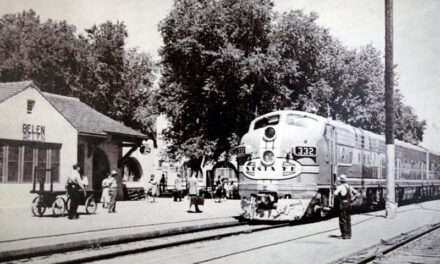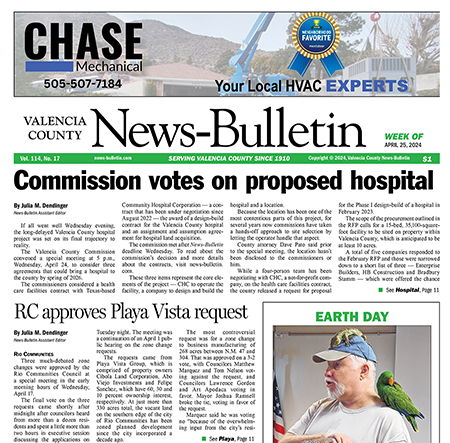
Mike Powers
VCNB Sports Writer
Have we finally reached a “tipping point” in the United States? Not about a testy national debate over guns, climate change, book banning, red versus blue or even red versus green.
This tipping point refers to a subject that puts my nerves on edge. I’m referring to tipping itself, the act of paying a server extra, usually at a restaurant, bar or hotel, for their assistance. A gratuity.
Do you ever freeze when it comes time to tip, searching for the calculator on the phone to figure out the correct percentage?
If you feel the stress while settling up after a night out or as the pizza delivery driver pulls up, welcome to the club. Over the past few years, countless articles have been written about who to tip, how much and when, generating unlimited responses from the masses. Tipping, as it turns out, has gotten contentious and complicated.
A little history is needed to fully understand my personal angst and how I have evolved.
Growing up, my family rarely strayed outside our kitchen for a meal. Maybe a trip to the Dairy Queen for a Sunday night treat, the A&W after a Little League game or a burger at Frosty’s In and Out. The only time we visited a standard restaurant was on vacation or when we had an athletic event out of town. Even then, I don’t remember my dad tipping. He had too though, right?
The point is I never really learned what tipping was all about until I started paying the check myself, and sometimes it’s a learning process.
My earliest memory of tipping was in 1981 while in Los Angeles at a Jerry Lewis MDA Telethon meeting. A bunch of us went to a comedy club. As we were leaving, a waiter came running out into the parking lot, and yelled, “Hey, you forgot to leave a tip.” I’m pretty sure we didn’t forget. The memory is still embarrassing.
Soon came a move to Albuquerque, and even though my hairstylist was really good, I would leave just a token tip. My reasoning? He was getting about $25 for 30 minutes of work. Wasn’t that good enough? Well, I totally missed the point. It wouldn’t be a surprise if my wife, Pat, slipped him a few bucks under the table to save face.
In recent years, family members, some of whom have worked in the service industry, have educated me about what waiters often deal with — rude and impatient customers, staff shortages, supply chain issues, on and on. If service isn’t exactly perfect, it may not be because of the person serving your table.
Thanks to this enlightenment, my standard rule for tipping under “traditional” conditions is now 20 percent. That seems reasonable considering the minimum pay for tipped employees in New Mexico is $3 per hour. However, Stacy Johnston with New Mexico Workforce Solutions adds, “If an employee receiving tip wages does not earn enough to meet the minimum wage, the employer must pay the difference.”
The state reports the average annual wage for a server in New Mexico is $32,800, just under a livable wage for New Mexico, according to wisevoter.com.
But the art of the gratuity is under fire these days. More and more businesses, not just sit-down restaurants, are encouraging tipping. It has created what is called “tipping fatigue” and “tipping creep.”
The other day, while going through a drive-thru to pick up pizza, I encountered a tip “prompt,” on the debit card payment. Would I like to tip 10 percent, 15 percent, 20 percent, other or nothing? I hit “nothing,” and felt guilty driving off. After all, the cashier was nice and there is a lot of work that goes on behind the scenes to get the pie ready.
In the category of “you just can’t win,” I faced a similar situation the week before and did give a tip when prompted. I somehow felt guilty about that, too.
Experts say that tipping has decreased nationally for reasons that include the pandemic, tip fatigue and inflation. That makes it challenging for servers who rely on the generosity of strangers to help pay the rent. Of course, not everyone can afford a big tip and any amount is probably appreciated.
No doubt, good money can be made waiting tables at some establishments and, in places like Albuquerque, Las Cruces and Santa Fe County, the minimum wage for servers has been increased.
DWS’s Johnston says anyone can be tipped, but sharing the tips, “pooling,” can only be for wait staff and “cannot include employees who do not customarily and regularly receive tips, such as cooks, janitors or dishwashers.”
Yes, tipping has gotten complicated, but I’m committed to working through this, figuring it out and being more of a generous person at checkout.
I have about 30 years of a not-so-good tipping history to make up for. While this attitude may raise the expectations of servers around the community when they see me walk through the door, don’t expect a windfall. As I said, I’m working through this.
Mike Powers spent more than 40 years as a television news and sports anchor, mostly in the Albuquerque market. He has won numerous awards including New Mexico Sportscaster of the Year. He covers a wide range of sports, including the Valencia County prep scene.
















